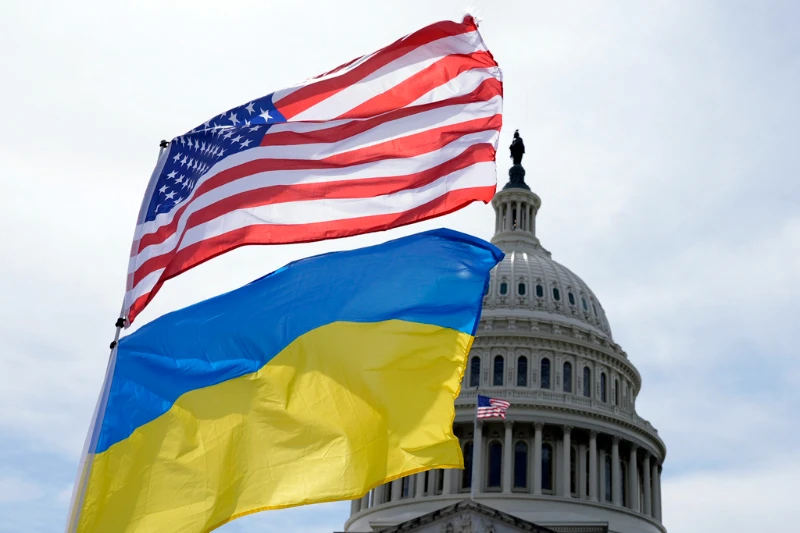FERC's Landmark Settlement with Stronghold Digital Mining: A Wake-Up Call for Cryptocurrency Regulation
As the Federal Energy Regulatory Commission cracks down on alleged energy market violations, concerns grow over the implications for Bitcoin mining and environmental sustainability.
The recent decision by the Federal Energy Regulatory Commission (FERC) to approve a settlement with Stronghold Digital Mining Inc. has sent ripples through both the cryptocurrency and energy sectors. This landmark case, involving alleged violations of PJM Interconnection's market obligations, marks a significant moment in the ongoing debate over Bitcoin mining and its impact on energy regulation. As FERC takes a stand against potential misuse of energy resources, questions about power, control, and risk management have come to the forefront.
Stronghold Digital Mining Inc., primarily focused on Bitcoin mining, operates by purchasing power plants and integrating them with their crypto-mining operations. Their business model allows them to either sell power in wholesale markets or mine Bitcoin based on profitability considerations. The company's Scrubgrass Reclamation Company owns a power plant in Pennsylvania that was supposed to offer its capacity into PJM's day-ahead and real-time markets daily unless unavailable due to outages.
However, allegations from the Office of Enforcement (OE) suggest that Stronghold failed to meet these obligations between June 2021 and May 2022. Instead of offering energy into the market as required, they allegedly diverted it for Bitcoin mining when it proved more profitable than selling it as electricity. Such actions have raised concerns about how co-located load and generation are treated within energy markets.
The implications of such practices are profound, especially given the rapid increase in demand associated with data centers and similar operations like cryptocurrency mining. Co-located load refers to situations where generation facilities also consume some of their output onsite rather than supplying all generated electricity externally - a practice scrutinized heavily due to potential market distortions.
Specific allegations against Stronghold include accusations that they misused energy sourced from PJM markets under "Station Power" rates meant for operational needs but instead used this for powering their Bitcoin operations - an act deemed inconsistent with tariff definitions by OE staff.
In response to these findings, FERC reached a settlement with Stronghold requiring them to pay approximately $1.4 million in penalties while agreeing upon compliance measures including training programs aimed at preventing future violations - a move seen as necessary yet insufficient by some critics who fear broader industry implications if unchecked growth continues unabated.
Industry experts have voiced concerns over possible exploitation scenarios where companies might prioritize profit-driven motives above regulatory compliance or ethical considerations regarding resource allocation - highlighting fears around unanticipated outcomes stemming from inadequate oversight mechanisms currently governing such entities' activities within regulated environments like those overseen by FERC today." This isn't just about one company; it's indicative," said an anonymous expert familiar with regulatory frameworks surrounding digital assets globally.
"85% have no fucking idea what is going on...5% speak" - @0to1bitcoin
Environmental groups are particularly alarmed at increased ecological footprints resulting directly from heightened consumption patterns linked explicitly back towards burgeoning demands fueled largely via speculative ventures tied closely alongside volatile commodities akin towards cryptocurrencies themselves. They argue stricter controls must be implemented swiftly lest irreversible damage ensues across fragile ecosystems already strained under existing pressures exacerbated further still amidst ongoing climate crises worldwide.
The regulatory leaders have been vocal about the necessity for stricter oversight following this case. They argue that without stringent regulations, companies like Stronghold might continue to exploit energy resources under the guise of cryptocurrency mining. "We must ensure that our energy markets are not manipulated by entities seeking profit at the expense of market integrity," stated a FERC official.
Public sentiment regarding cryptocurrency regulations is mixed. While some advocate for innovation and growth in this sector, others warn against unchecked expansion that could lead to systemic risks. A concerned citizen remarked, "Cryptocurrency has its place, but we cannot allow it to disrupt essential services or compromise environmental standards." This sentiment echoes the broader public's apprehension about balancing technological advancement with societal responsibilities.
This event may set a significant precedent for future enforcement actions involving cryptocurrency firms operating within regulated markets. The settlement between FERC and Stronghold underscores the importance of compliance with existing regulations and highlights potential consequences for non-compliance. Industry analysts suggest that this could lead to more rigorous scrutiny of similar operations in the future.
Experts are divided on whether FERC’s actions represent a necessary step towards better regulation or if they stifle innovation in emerging technologies like blockchain and cryptocurrencies. Some argue that such measures are crucial for maintaining market stability, while others believe they may hinder progress by imposing excessive constraints on innovative industries.
"To the people defending corruption" - @0to1bitcoin
There are also concerns about allowing cryptocurrency companies more leeway in energy consumption without adequate oversight or accountability measures in place. Critics fear that this could result in increased strain on already overburdened power grids and exacerbate environmental issues associated with high energy usage.
The broader implications of this incident extend beyond just regulatory compliance; it raises questions about public trust in regulatory bodies tasked with overseeing powerful industries like crypto-mining. Transparency and fairness in enforcement actions are paramount to maintaining confidence among stakeholders.
